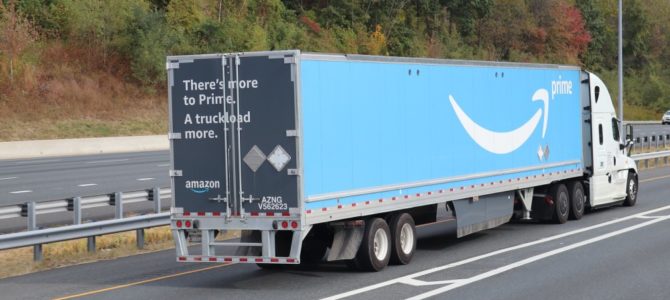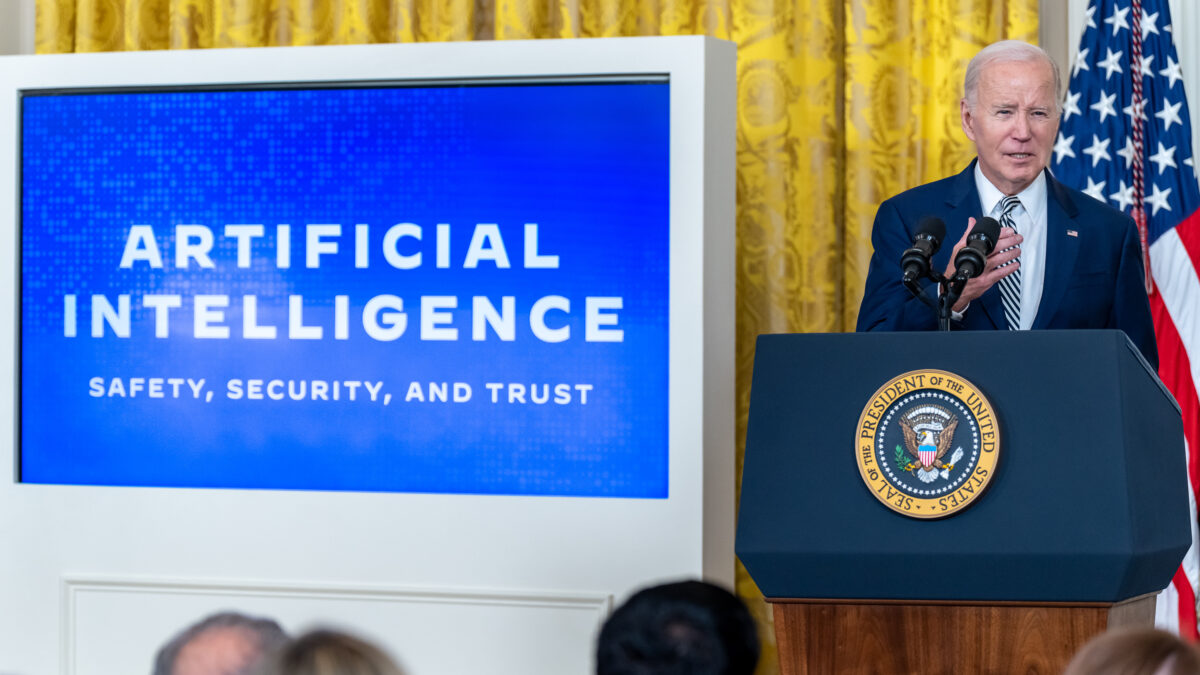
My husband and I have been Amazon users for about 15 years. In college, I used it to buy and sell books, rolling the cost of last semester’s books I didn’t plan to keep into the next semester’s set.
We became Prime members in July 2017 and delighted in two- and even one-day shipping of everything from diapers to canned goods to dry erase markers to work boots, eliminating the annoyance of running to the store over one or two items. I developed Prime Day and Black Friday strategies for getting loads of deals, eagerly watching sales on coveted items open and filling my online shopping cart. It seemed fun, easy, and exciting.
And then it wasn’t fun, easy, and exciting any more, because Amazon became evil—and I learned how evil they had really been all along. Using it to indulge my own greed and materialism was one problem. Amazon’s use of its market power is another. Both are a big deal.
Amazon now claims the right to bar all books that are "inappropriate or offensive."https://t.co/marbANIvjM
Of course, nearly *every book* worth reading could be characterized as 'inappropriate' or 'offensive' to someone. /2 pic.twitter.com/TRALPVao0C
— Abigail Shrier (@AbigailShrier) February 26, 2021
For one thing, it just became tiring and gross to spend so much time paging through piles of cheap Chinese products that I had learned would break and go bad quickly. The consumerism, envy, and greed felt yucky to participate in, and they conflict with my religious beliefs.
Maybe on Thanksgiving it was better to linger over the pie and pull out a board game than rush to Black Friday online sales of stuff I didn’t really need and was more of a cheap thrill for my kids than an investment in their long-term happiness.
I am also extremely uneasy about Alexa surveilling and recording my children in friends’ homes and supplying them unparented access to the garbage of the internet, which we severely restrict in our home on purpose. My children’s voiceprints, life patterns, friendship networks, and search queries don’t belong to Amazon or any other entity, thanks.
In addition, I noticed Amazon pilfering from the work and ingenuity of smaller sellers by making or inserting cheap overseas imitations of highly popular goods, undercutting their price point.
“No competitor is too small to draw Amazon’s sights,” the Wall Street Journal noted in December. “It cloned a line of camera tripods that a small outside company sold on Amazon’s site, hurting the vendor’s sales so badly it is now a fraction of its original size, the little firm’s owner said.” An earlier WSJ investigation found Amazon targets popular products and vendors to take over their market share, often with inferior products. I was finding that true all the time.
When I searched for this or that, instead of finding quality and American-made goods, I’d have to wade through piles of cheap stuff from weirdly named companies that I wasn’t sure I could trust to send me good products. I was using Amazon for convenience, not to get scammed and waste money and time on stuff that would break fast.
WSJ reporting and a congressional investigation allege Amazon deliberately seeks monopoly status over numerous market segments by purposefully price-gouging on products until it wins control of the market. This is now under investigation by federal antitrust regulators. Meanwhile, Jeff Bezos has become the world’s richest man thanks partly to worldwide lockdowns cheerled, among other leftist outlets, by the Washington Post he owns.
Amid this, the news that Chinese factories sometimes use slave labor, and that slave labor has been directly linked to an Amazon supplier, made me increasingly uncomfortable buying products from unknown and Chinese sources, which flood the Amazon market. In China slaves are raped, forcibly sterilized, ripped from their families, and tortured.
Many of the things I bought on Amazon I couldn’t be sure had not been wrung from slave labor somewhere. I simply could not continue to buy cheap stuff knowing it could have been made at the expense of such human suffering. So I stopped. I haven’t bought anything from Amazon since mid-December 2020 (my husband has, but he’s weaning himself off the site and just canceled our Prime subscription—thanks, babe!). And I don’t miss it.
It was easy to stop the quick little purchases of items I forgot to buy at the store or ran out of between shopping trips. I just added them to my shopping list or learned to do without and practiced more patience. A bit trickier was figuring out how to source all the random things I had started to grab by default on Amazon.
An early larger purchase I struggled to make off Amazon was a gift of baby carriers to some new parents. That is the sort of thing I would have by default clicked over and bought on Amazon in three minutes. After consulting with a friend who used to run a babywearing shop (the industry has been hollowed out by big companies pushing for unnecessary “safety” regulations that small, independent providers cannot meet because mom and pop Etsy shops can’t afford 24/7 lawyers), I learned about these three from smaller sources.
Then I learned to buy what I wanted direct from the supplier. For example, my husband’s favorite dress socks are from Dockers. Now he just buys them straight from the Dockers website instead of on Amazon. For our many, many book purchases (the item we are always over-budget on) I now start at Better World Books or IndieBound.
We buy hardware supplies at the local hardware store and office supplies at local office stores. I buy our kids’ voluminous art supplies and gifts from homeschool suppliers such as Rainbow Resource and Miller Pads and Paper, which have great selection and prices. I also like sending my money to family-run companies instead of international conglomerates who use the excess to lobby against my desired way of life.
Over the past year I’ve started to buy more and more food locally through small, family-run farms and our farmer’s market. At first I worried about the higher prices, but then I decided I needed to wean myself off slave labor and factory-farm prices made possible by stuffing foreign workers into un-American living and working conditions and that enable companies’ demand for opening our borders to people our nation no longer assimilates.
I needed to adjust to paying people an American living wage for their hard, high-quality labor, just as I want to be paid a family-sustaining wage for my labor. The money saved from buying less cheap Chinese crap that kids break quickly was redirected into our food budget. I like living this way for multiple reasons—less waste and consumerism and higher quality of fewer goods chief among them. The taste and health benefits are clear as well.
In January, my desire to avoid Amazon was again reinforced by the web services giant’s decision to ban Twitter competitor Parler on false grounds. Amazon is one of the world’s largest web hosting services and claimed it cut ties with Parler because Parler hosted riot planning. Court documents later showed that Facebook and Twitter did the same thing to a far larger extent, showing the ban wasn’t about “violence” at all, but about enforcing leftist hegemony over public discourse and commerce.
Now Amazon has apparently decided their power is so great they can move into banning conservatives from the areas of the internet they control. Besides defenestrating Parler from their servers, Amazon apparently yanked a documentary about African-American Supreme Court titan Clarence Thomas in February.
I watched the documentary; it is wonderful. Thomas’s story of moving from revolutionary black power Marxist to the nation’s most constitutional jurist powerfully jams leftist narratives. It is a stunning oral history from one of the nation’s crown jewels. Thomas’s only “crime” is being a smart, black, powerful conservative.
Now Amazon is openly attempting to ban conservative ideas from ever getting published. Who knows what it will do next, but this trail of power abuses indicates it’s not going to be anything good. Whatever they’re going to do, it won’t be funded by me.
I’m not even three full months into weaning myself off Amazon, and each week reinforces that it was the right decision. The only thing better would have been to quit much earlier.









